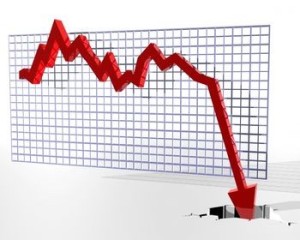 An unintended wealth transfer happens when you spend more money than you would have spent if you had known there was a less expensive alternative. Unintended wealth transfer is synonymous with wasted money. If you spend a dollar that you did not have to spend, you not only lose that dollar, but what that dollar could have earned had you been able to keep it.
An unintended wealth transfer happens when you spend more money than you would have spent if you had known there was a less expensive alternative. Unintended wealth transfer is synonymous with wasted money. If you spend a dollar that you did not have to spend, you not only lose that dollar, but what that dollar could have earned had you been able to keep it.
We all have unintended wealth transfers that happen on a regular basis, but some are not as obvious, or as costly, as others. If you pay 5 cents per gallon more for gas than you could have paid and you have a 20-gallon tank, you will spend $1.00 more than you have to. However, you will likely waste more than a dollar in gas driving around looking for a gas station that is selling gas 5 cents per gallon cheaper. So it is important to understand that I am not talking about always pursuing or getting the lowest price for everything you buy.
The types of unintended wealth transfers I am referring to are those transfers that are substantial enough, and happen often enough, that they can have a significant impact on your ability to save for your future.
We find people tend to lose money in the following areas:
- How they choose to structure and pay for their mortgage
- How they choose to pay their taxes
- How they choose to save for retirement
- How they choose to save for higher education
- How they choose to pay for their major capital purchases
I was recently interviewed by Gary Collins of Primal Power Method, a program dedicated to helping people make educated decisions concerning their health, and in the first episode we discussed ways in which people may be unknowingly and unnecessarily transferring their wealth to others by how they choose to structure and pay for their mortgage. Below are some common examples:
- The size of their down payment (including paying all cash)
- Using mortgage terms of less than 30 years (i.e., 15-year, 20-year, etc…)
- Making “extra” principal payments to the lender
- Paying mortgage insurance premiums unnecessarily
- Paying a higher interest rate than current market rates
- Not consolidating non-tax-deductible debt when possible, to name a few
There are many ways you can end up transferring your wealth unknowingly and unnecessarily and mortgages are only one example. In 2011, the IRS collected $5.7 billion in early withdrawal penalties from Americans for withdrawing their own money from their own retirement plans. I have no doubt those Americans did not intend to transfer that $5.7 billion to the IRS, but they needed access to their savings and that was the price they had to pay.
Deferring the payment of taxes today, when you know the tax rate, to a time when you don’t and can’t know what tax rates will be may cost you thousands, and even tens of thousands of dollars in additional taxes that you didn’t intend to pay.
 The S&P 500 stock index lost an estimated 46% of its value from its highest point to its lowest point from 2000 – 2002. From its highest point in October 2007 to its lowest point in March 2009, the S&P 500 stock index lost an estimated 59% of its value. Americans lost hundreds of billions of dollars. Now that’s an unintended wealth transfer if there ever was one.
The S&P 500 stock index lost an estimated 46% of its value from its highest point to its lowest point from 2000 – 2002. From its highest point in October 2007 to its lowest point in March 2009, the S&P 500 stock index lost an estimated 59% of its value. Americans lost hundreds of billions of dollars. Now that’s an unintended wealth transfer if there ever was one.
If you are currently losing more money than you have to in one or more areas of your financial life, would you want to know? If there are methods that would allow you to reduce or eliminate those unintended wealth transfers, would you want to know?
Following are 5 truths about unintended wealth transfers:
- Most people don’t know they exist
- They are hidden and you have to dig to find them
- They are either a current and/or future liability
- They can be a huge obstacle to your efforts to grow your wealth
- They can hinder your ability to improve your monthly cash flow
The greatest impact you can have on your monthly cash flow, as well as your overall financial health, is to identify any wealth transfers you may be making unknowingly and unnecessarily and take steps to minimize or eliminate them. We are experts at identifying unintended wealth transfers. We routinely improve our client’s monthly cash flow by hundreds, and sometimes even thousands, of dollars per month by finding the not-so-obvious transfers and doing just that, minimize or eliminate them.
If you would like us to help you identify the unintended wealth transfers that exist in your finances and devise a strategy and tactics to bring those dollars back under your control call us immediately to schedule a time to discuss your specific circumstances.
Leave a Comment